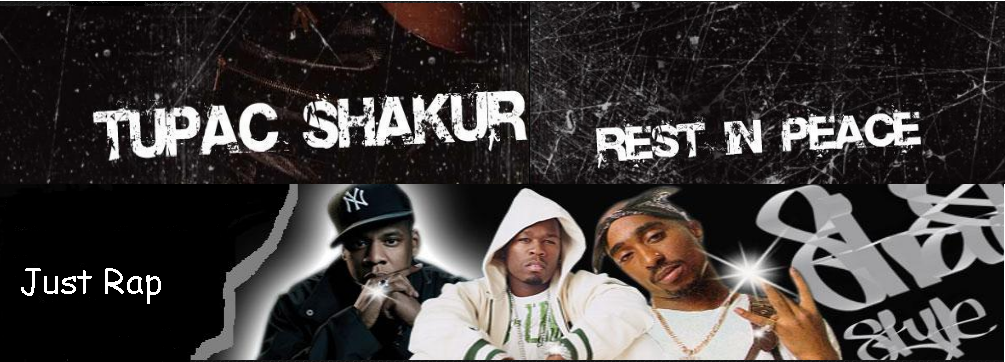One of the few truly unique hip-hop artists to revel atop the commercial side of the industry during the early 2000s, Kanye West spent most of his time producing flavorful hits for Jay-Z and other top-tier rappers, yet he eventually seized the opportunity to launch his own rapping career as well. [ Kanye West the Rapper ]
Granted, West himself wasn't a phenomenal rapper, but he had a lot going for him. For one, he was witty, coming up with off-the-wall lyrics like "She's got a light-skinned friend look like Michael Jackson/Got a dark-skinned friend look like Michael Jackson" that were smart and funny at the same time, even if they didn't employ elaborate rhyming schemes à la Rakim or street-prophet motifs à la Nas.
Secondly, he had a singsong flow that made him seem like an everyman rapper as if he were your homeboy from down the street (or perhaps you yourself), even though he was, in fact, a seasoned rapper who'd been spitting game since he first heard Run-D.M.C. way back in the day. Moreover, his beatmaking skills were peerless: a trademark pitched-up, chopped-up use of somewhat recognizable samples for his hooks, and a likewise trademark stutter-step drum-programming touch for his rhythms -- a simple yet potent combination. And lastly, because of his hitmaking credentials, he had ties to some of the top names in the industry, from Jay-Z and Ludacris to Dame Dash and Jamie Foxx, all of whom helped West get his solo career off the ground with a bang. [ Kanye West the Rapper ]
That bang happened during the opening weeks of 2004, when not one but two songs featuring him as a rapper ("Through the Wire" and "Slow Jamz") were downright ubiquitous, saturating music-video television and urban radio all the while skyrocketing to the top of the charts. Of course, West was no stranger to success, having produced hits for years, but suddenly he wasn't just an in-demand producer -- he was the man of the moment, the latest in a long line of momentarily brand-new, red-hot rappers thrust into the mass-media spotlight. [ Kanye West the Rapper ]
Yet at the same time, West wasn't your ordinary superstar rapper. Again, he was very much your everyman rapper, relying more on his wit and his earnestness (and his own beatmaking) than the usual cocktail of sex, drugs, violence, and street dreams (though he did have a good car-accident back-story) -- all of which, of course, was refreshing circa 2004 in the wake of 50 Cent. [ Kanye West the Rapper ]
From out of left field (i.e., Chicago, anything but a hip-hop hotbed), West was an unlikely sensation and more than once defied adversity. Like so many others who were initially inspired by Run-D.M.C., he began as just another aspiring rapper with a boundless passion for hip-hop, albeit a rapper with a Midas touch when it came to beatmaking. And it was indeed his beatmaking skills that got his foot in the industry door. [ Kanye West the Rapper ]
Though he did quite a bit of noteworthy production work during the late '90s, it was his work for Roc-a-Fella at the dawn of the new millennium that took his career to the next level. Alongside fellow fresh talent Just Blaze, West became one of The Roc's go-to producers, consistently delivering hot tracks to album after album. He first caught everyone's ear in 2001 when he laced Jay-Z's earth-shaking Blueprint album with "Takeover" and "Izzo (H.O.V.A.)." [ Kanye West the Rapper ]
Both songs were enormous successes, partly so because of West's trademark beatmaking style, which was largely sample-based -- in these brilliant cases the former track appropriating snippets of the Doors' "Five to One," the latter the Jackson 5's "I Want You Back." [ Kanye West the Rapper ]
More high-profile productions followed, and before long word spread that West was going to release an album of his own, on which he'd rap as well as produce. Unfortunately, that album was a long time coming, pushed back and then pushed back again. It didn't help, of course, that West experienced a tragic car accident in October 2002 that almost cost him his life. He capitalized on the traumatic experience by using it as the inspiration for "Through the Wire" (and its corresponding video), which would later become the lead single for his eventually released debut album. [ Kanye West the Rapper ]
That debut album, The College Dropout (2004), was continually delayed while West continued to churn out big hits for the likes of Talib Kweli ("Get By"), Ludacris ("Stand Up"), Jay-Z ("'03 Bonnie & Clyde"), and Alicia Keys ("You Don't Know My Name"). Then, just as "Through the Wire" was breaking big-time at the tail end of 2003, another West song caught fire, a collaboration with Twista and comedian/actor Jamie Foxx called "Slow Jamz" that gave the rapper/producer two simultaneously ubiquitous singles and a much-anticipated debut album. [ Kanye West the Rapper ]
As with so many of West's songs, these two were driven by somewhat recognizable sample-based hooks -- Chaka Khan's "Through the Fire" in the case of "Through the Wire," and Luther Vandross' "A House Is Not a Home" in the case of "Slow Jamz."
West earned ten nominations for the 47th annual Grammy Awards, held in early 2005. The College Dropout won the Best Rap Album award, "Jesus Walks" won Best Rap Song, and a songwriting credit on "You Don't Know My Name" had West sharing the Best R&B Song award with Alicia Keys and Harold Lilly.


